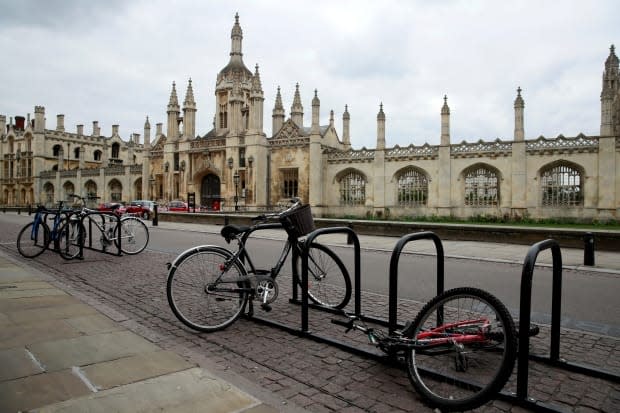Academic from Saskatoon plays key role in Cambridge University divesting from fossil fuels
A historic university in the United Kingdom announced last month that it will end investments into fossil fuels by 2030 and a woman who grew up in Saskatoon played a key role in the change.
Cambridge University, an 811-year-old university in England with an investment fund worth more than $6 billion CDN, announced on Oct. 1 that it would sell all its investments into fossil fuels by 2030 as part of the university's goal to produce zero greenhouse gas emissions by 2038.
Ellen Quigley, an academic at Cambridge who grew up in Saskatoon, was the primary author of a report outlining the advantages and disadvantages of divesting from fossil fuels. The report played a significant role in the change.
"I wasn't actually supposed to necessarily convince them at the outset. It was supposed to be, 'How do you collect all of the relevant evidence to make a decision like that?'" Quigley told Saskatoon Morning host Leisha Grebinski Monday.
"I think that I had a narrower view at the beginning. Although I supported the movement because I think it's important to to question our reliance on fossil fuels, I didn't think [divestment] was necessarily that effective until starting this research."
Quigley attended events, conducted interviews, and analyzed literature and data as part of the process. Her 114-page report discussed the moral, social, political and financial aspects of investing in renewable energy, as well as the consequences to the university's reputation and image.

The report also summarized various scenarios of how divestment could work for Cambridge University.
"I still think [divestment is] not the perfect tactic or anything. But I came to think that, in fact, it does seem to have genuinely affected public discourse, which seems to be necessary to change legislation," Quigley said.
"Societies don't tend to legislate things that we don't view as problematic. Also... it does look like divestment can actually have an effect on the companies and maybe get them to think about making different investment decisions."
Quigley said she believes the report itself had less impact than the discussions she had to have about how the university could be most effective in its role of combating climate change.
"Those difficult discussions ended up producing the results," she said.
The university said it will sell its shares in fossil fuel companies before the new year, build its investments in renewable energy by 2025, and divest from all "meaningful exposure" in fossil fuels by 2030, according to a news release.
Quigley hopes for smooth transition
Canada's oil sector has taken a significant hit since the COVID-19 pandemic began.
According to Statistics Canada data, the Saskatchewan oil sands produced more than 13 million barrels of crude oil in August 2020 (the most recent data available). That is an increase from the 11.2 million barrels in May, but it's still the lowest production since at least January 2016.
As countries around the world start taking more decisive action against climate change, the oil sector will continue to feel the financial impact, Quigley said. She noted that the announcement by Cambridge University signals a global trend where investors are realizing there is an expiration date in that sector, so they look to invest elsewhere.
Quigley said she hopes there is a smooth transition from one energy source to other renewable sources, but that for that to happen, dialogue has to begin now.
"If you want to conserve the money that is otherwise going to go into projects that are that are wasted, I think it's time for a sensible conversation," she said.
"I don't think it's about we're either pro-oil and gas or anti-oil and gas, it's oil and gas are going away. How do we want that to happen in such a way that it doesn't hurt communities, it doesn't hurt provincial budget, it doesn't put workers out of work with no retraining and no other options."
Quigley said that there could be opportunities in Saskatchewan to invest toward wind and solar power, and geothermal energy.

